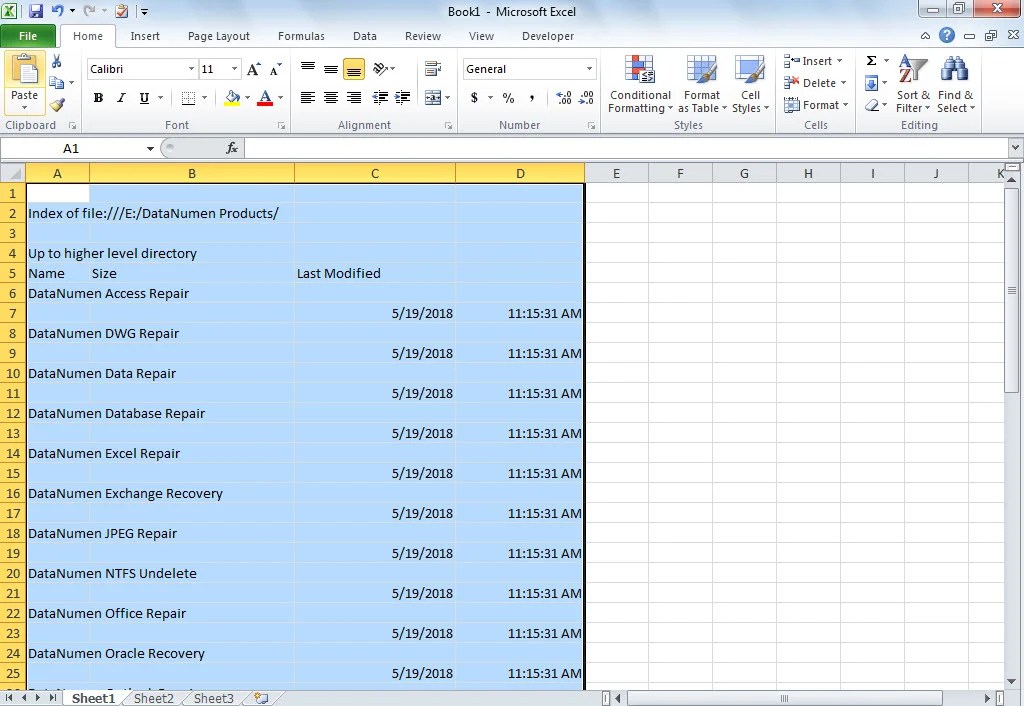5 Simple Ways to Copy Sheet Names in Excel

Introduction to Copying Sheet Names


Have you ever needed to quickly reference or list all the sheet names in an Excel workbook? Whether for documentation purposes, generating a table of contents, or simply keeping track of your work, Excel offers several methods to accomplish this task effectively. Let’s explore the 5 simple ways to copy sheet names within Excel, enhancing your productivity and workflow management.
Method 1: Using VBA Code to Get Sheet Names


The power of Excel’s Visual Basic for Applications (VBA) cannot be underestimated when it comes to automating repetitive tasks. Here’s how you can use VBA to copy all sheet names:
- Press Alt + F11 to open the VBA Editor.
- Go to Insert > Module to add a new module.
- Copy and paste the following code:
Sub CopySheetNames() Dim ws As Worksheet Dim SheetNames As String For Each ws In ThisWorkbook.Worksheets If SheetNames = "" Then SheetNames = ws.Name Else SheetNames = SheetNames & ", " & ws.Name End If Next ws MsgBox "Sheet names: " & SheetNames End Sub - Close the VBA Editor and run the macro with Alt + F8, selecting CopySheetNames from the list.
This method will display a message box with all the sheet names separated by commas.
💡 Note: This code does not alter your workbook. It simply lists sheet names in a message box. To save this information, you’d need to modify the code to write it to a cell.
Method 2: Using Formulas to Extract Sheet Names


While VBA is powerful, Excel’s built-in formulas can sometimes offer a more straightforward approach:
- Create a new worksheet or clear an existing one.
- In cell A1, type: =GET.WORKBOOK(1) and press Ctrl + Shift + Enter to enter it as an array formula.
- This formula lists workbook information in an array.
- Then, use the MID and FIND functions to extract the sheet names, using a helper column or dynamic array formulas.
| Column | Formula |
|---|---|
| B1 | =MID(GET.WORKBOOK(1),FIND(“]”,A1)+1,255) |

🌟 Note: This method works in older versions of Excel. For newer versions, dynamic array formulas can simplify this process.
Method 3: Manually Renaming Sheets


Although not as automated, manually renaming sheets can be effective in smaller workbooks:
- Double-click the sheet tab to highlight the current name.
- Type in the new name and press Enter.
- Repeat this process for each sheet you want to rename.
Method 4: Using Excel’s Navigation Pane


Excel’s Navigation Pane offers a visual way to manage sheets:
- Go to View > Show > Navigation.
- The Navigation Pane will appear on the left side of your screen, showing all sheets as tabs.
- Right-click on any sheet tab to copy or move it to a new workbook or to create a copy in the same workbook.
Method 5: Using Excel Add-Ins for Bulk Actions


Add-ins can significantly enhance Excel’s functionality, particularly when dealing with multiple sheets:
- Browse the Excel Store or Office Add-ins for tools like “Sheet Navigator” or “Copy Sheets Add-in”.
- Install the add-in and use it to easily copy, rename, or manage sheets in bulk.
- These tools often come with user-friendly interfaces for quick operations on sheet names.
By now, you've explored various methods to copy and manage sheet names in Excel. Each approach has its advantages, from the automation of VBA to the simplicity of manual renaming. Depending on your needs, these methods can streamline your work, especially when managing large and complex workbooks.
In conclusion, mastering these techniques not only enhances your productivity but also deepens your understanding of Excel's capabilities. Whether you're preparing a report, auditing a workbook, or simply organizing your data, knowing how to effectively copy and manage sheet names can save time and reduce errors. Remember, each method offers unique benefits tailored to different levels of technical comfort and specific Excel functionalities. Keep experimenting, and soon, managing sheet names in Excel will become a seamless part of your workflow.
Can I copy sheet names without VBA?

+
Yes, you can use Excel formulas like GET.WORKBOOK or manually rename sheets, but these methods might be less efficient for larger workbooks or multiple sheets.
Is there a way to automatically name sheets?

+
VBA or specific Excel add-ins can automate this process, but Excel itself does not have a built-in feature for automatic sheet naming based on cell contents or other criteria.
What happens if I try to rename a sheet to a name already in use?

+
Excel will prompt you to choose a different name. If you accidentally name a sheet the same, you’ll get an error message asking for a new name.